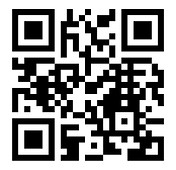
There's an easy way.
Just cough into your mobile.
And answer a few questions...
And get an indication for signs of Covid before a clinical diagnosis.

It's that easy.
Helfie's AI analyses your cough and any symptoms for signs of Covid, in seconds.


In Brief COVID-19 is a highly infectious respiratory disease caused by the SARS-CoV-2 virus. It spreads mainly through respiratory droplets when an infected person talks, coughs, or sneezes, or by touching a surface contaminated with the virus and then touching the mouth, nose, or eyes. Symptoms of COVID-19 include fever, cough, shortness of breath, fatigue, muscle aches, loss of taste or smell, sore throat, and congestion or runny nose. The severity of the illness can range from mild to severe, and in some cases, it can be fatal, especially in older adults or people with underlying health conditions.
Why Check? It is important to check for COVID-19 because it is a highly contagious disease that can spread rapidly through communities, and it can cause severe illness, hospitalization, and even death, especially in vulnerable populations such as older adults or people with underlying health conditions. Early detection and diagnosis of COVID-19 through screening can help to identify infected individuals and prevent further spread of the virus. Screening also helps healthcare professionals to isolate infected individuals, provide appropriate treatment, and monitor their health status. It can also help public health officials to track the spread of the disease, identify hotspots, and implement control measures to prevent further transmission. In addition, testing is important for individuals who may have been exposed to COVID-19 but have not yet developed symptoms. Such individuals can still spread the virus to others, and early detection through testing can help to prevent further transmission. Overall, checking for COVID-19 is critical to protect individuals, communities, and public health, and to help control the spread of the disease.
Clear next steps, information, chat with our AI.
Expert information at your fingertips.


Share Results
Share your results with your Employer, Doctors, family members.
-
Enjoy complimentary access to Helfie AI, including all health checks







